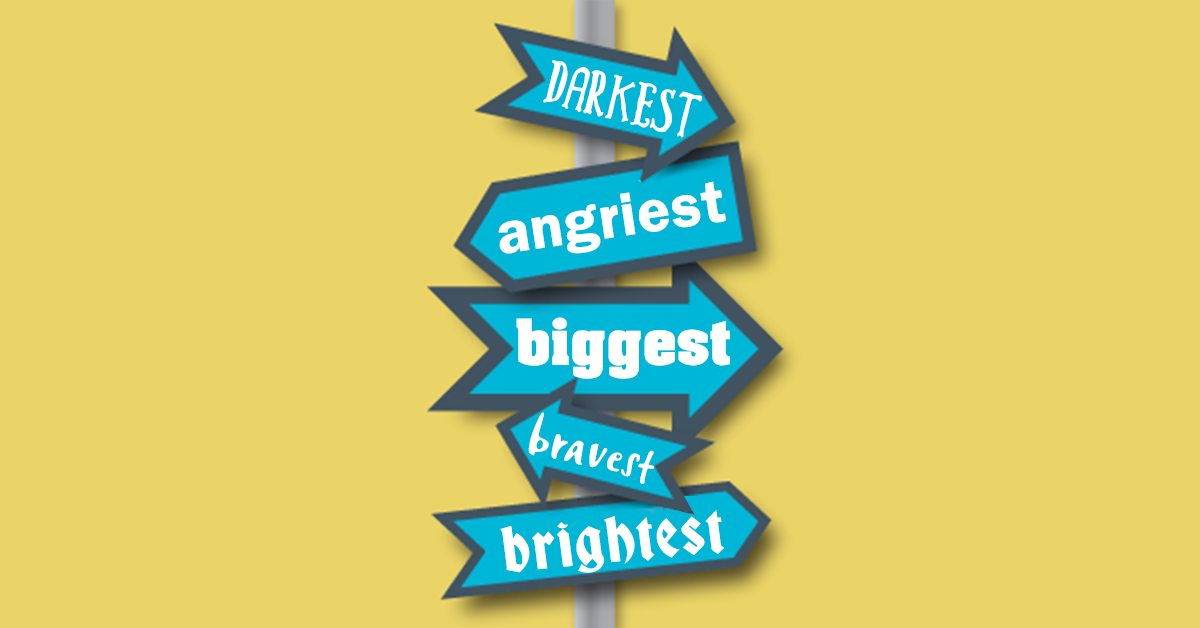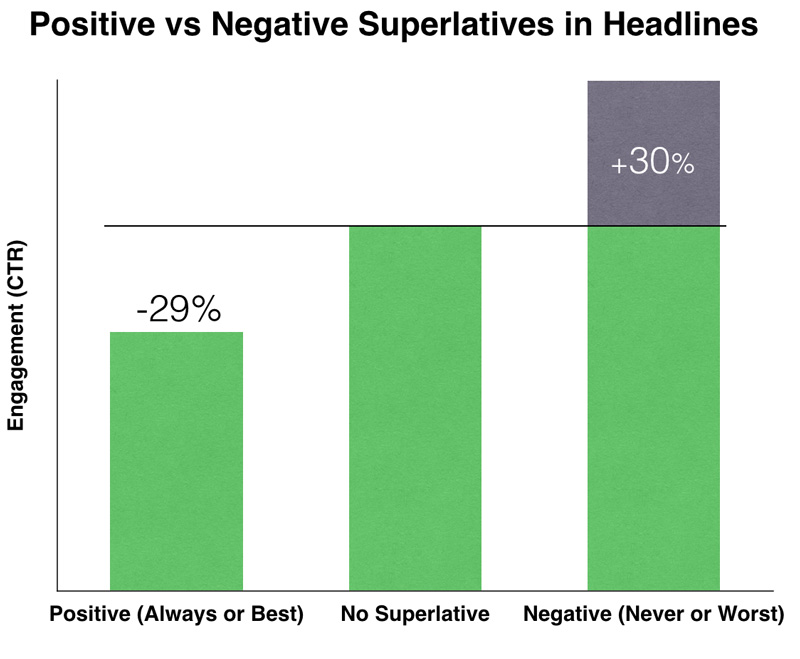
Do you want to write more effective headlines?
A superlative is an adjective of the highest kind, quality, or order; surpassing all else or others. It indicates the greatest degree of the quality that the adjective describes. Best is the superlative form of good; fastest is the superlative form of fast.
Superlatives - words like best, biggest, greatest - can be effective in headlines. But it turns out that negative superlatives (like least) can be even more powerful.
In a study of 65,000 titles, Outbrain compared positive superlative headlines, negative superlatives headlines and no superlative headlines. The study found that headlines with positive superlatives performed 29% worse and headlines with negatives performed 30% better. The average click-through rate on headlines with negative superlatives was 63% higher than with positive ones.

There are a few theories on why this might be:
- Positive superlatives may have become cliched through overuse, which leads to them being ignored.
- It may be that negatives are more intriguing because they're unexpected and surprising.
- Negatives also tap into our insecurities in a powerful way. Using negative words like "stop", "avoid," and "don't" often work because everyone wants to find out if there's something they're doing that they shouldn't.
- Negative terms are more likely to be viewed as authentic and genuine.
In terms of news headlines, you are more likely to click on headlines like: "The worst economic dip in 30 years," "Unemployment numbers have never been lower," and "10 Ways Facebook is destroying your life."
Key Takeaways
When it comes to headlines, negative prevails over positive.

